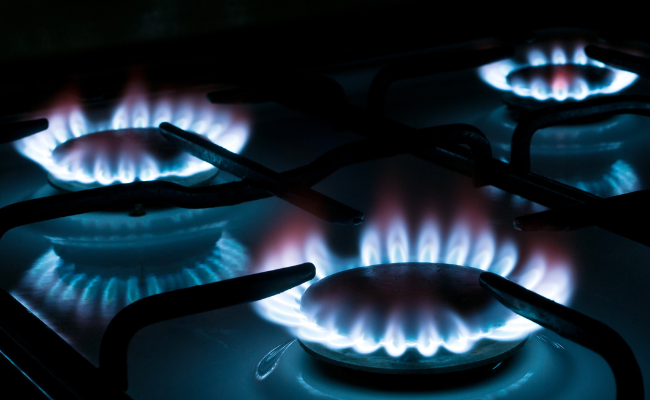What you need to know about the potential gas stove ban
A US federal agency is considering a gas stove ban over increasing concern about its health risks. Gas stoves significantly affect indoor air, and it mainly affects children.
Generally, 35% of US households use gas stoves. However, these kitchen staples are a source of indoor pollution that is associated with childhood asthma. A US Consumer Product Safety commissioner said gas stove usage is a “hidden hazard.”
Agency commissioner Richard Trumka Jr. said, “Any option is on the table. Products that can’t be made safe can be banned.” Hence, the agency aims to “take action” to fix the indoor pollution issue that gas stoves are causing. In October, Trumka advised that the CPSC find public comment on the hazards linked to the gas stoves as the pollutants worsen respiratory conditions.
I’m gonna tell you something right now — you want to lose the ENTIRE restaurant industry? BAN GAS STOVES. Who the hell do these people think they are?! Shoot poison into your arm or else, stop using gas stoves, they are bad for your health and the environment. Take a hike, moron. pic.twitter.com/FKAtJYzLCE
— Tracy Beanz (@tracybeanz) January 9, 2023
According to Bloomberg, Trumka is ready to consider all options. This potential gas stove ban may require home builders to outfit new dwellings with electric stoves or high-efficiency exhaust vents. For consumers, this could mean a lot of changes, and here’s what it could mean for you.
What the CPSC points out
Despite calls for procedures, Consumer Product Safety Commission (CPSC) has told TIME that any such regulation would require an extended process. In March, the agency plans to open up a public comment period on gas stove dangers. Trumka made it clear that rather than physically removing gas stoves from people’s homes across the country, new gas stoves must meet specified regulations issued by the agency.
Trumka tweeted on Monday, “To be clear, CPSC isn’t coming for anyone’s gas stoves. Regulations apply to new products.” He continued, “For Americans who CHOOSE to switch from gas to electric, there is support available—Congress passed the Inflation Reduction Act, which includes an $840 rebate.”
Last year, several lawmakers discussed the issue. This discussion comes 50 years ago after researchers in England, and Scotland surveyed over 5,000 children and their parents. The survey revealed an alarming correlation between gas cooking and asthma symptoms.
An Illinois Democrat, Rep. Raja Krishnamoorthi wrote a letter to CPSC in August. He asked for urgent action from the agency to create safety standards for consumers and address the health hazards of using gas stoves. Rep. Krishnamoorthi said, “CPSC has the authority either to issue mandatory standards and require warning labels or to work with industry to develop voluntary standards and labels that would address indoor air pollution from gas stoves.”
What Science suggests
Several studies have pointed to gas stoves as a major source of air pollution due to the release of nitrogen dioxide and PM2.5 particles. These microscopic airborne particles are 30 times smaller than a human hair. Studies also found these irritate the lungs and has links with childhood asthma.
Last month, a new peer-reviewed study published in the International Journal of Environmental Research and Public Health showed staggering results. Gas stove usage puts more than 12% of America’s children at risk for asthma. Brady Seals, a manager with the Carbon-Free Buildings Program at RMI and one of the study’s co-authors, told TIME that gas stove danger is comparable to secondhand smoke exposure.
Seals confirmed that specific populations, including children and people with asthma, are more prone to diseases from gas stove pollution. It’s because children are still developing their immune systems and lungs. “This gets into the health equity issues since we know asthma is a profoundly unequal disease as Black children are almost three times more likely to have asthma than white children.”
Should you change your gas stove?
In households with young children, gas stoves have recently come into question. With the potential for gas leaks and air pollution from gas cooking, some families are opting to move away from gas stoves altogether.
To reduce gas stove emissions, the National Asthma Council suggests installing a high-efficiency range hood. This can transport contaminants outdoors instead of circulating them within the home. For those without exhaust, you can open windows during and after cooking for ventilation. It’s an easy way to decrease gas-related health hazards.
Despite gas furnaces, water heaters, and dryers all requiring outdoor ventilation by law, gas stove ventilation is currently unregulated by the federal government. Seals note that CPSC can still implement a gas stove ban under certain circumstances. She also noted that the agency might have new regulations instead of outright banning the appliances.
Seals added, “I think having a mandatory performance standard and warning labels on gas stoves would be huge. But also making sure stoves are ventilated outdoors. It’s wild to me that our furnaces and water heaters are all vented outdoors, but for the one appliance we’re standing in front of, it’s not universally required.”
Gas Stove Dangers
Gas stoves pose certain health risks even with proper ventilation and exhaust vents are on. A recent Environmental Science and Technology study shows that gas stoves can be hazardous. They can leak low methane gas, benzene levels, and other toxic chemicals like toluene, hexene, and xylenes.
It is critical that gas stove users ensure that their vent is always open to reduce overall risk. A recent independent study conducted by researchers at Stanford University in early 2022 found that the concentration of nitrogen dioxide emitted from gas burners and ovens is alarming. Results showed that such concentrations rose above the outdoor standards set by the Environmental Protection Agency within minutes.
However, cooking will always emit pollutants into the environment, no matter the method. According to researcher Seals, even cutting-edge appliances such as microwaves and toasters may not reduce your carbon emissions right away. It is true that gas stoves are heavily polluting and need a ban. Still, it is essential to consider other pollution sources associated with food preparation before giving gas burners up entirely.



